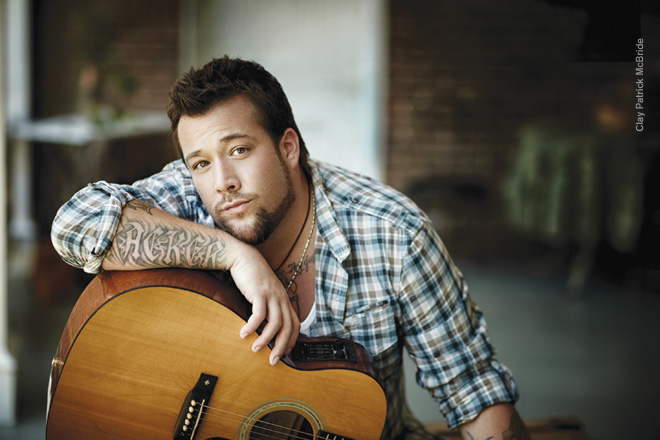 UNCLE KRACKER
UNCLE KRACKER
A pop-rock hit-maker brings his feel-good groove to country music
His 2001 breakout single, “Follow Me,” was a pop smash. But in recent years, Uncle Kracker, aka Matthew Shafer, has shifted from funky post-grunge rock to country, working with producer Keith Stegall (Alan Jackson, Zac Brown Band) and signing with roots label Sugar Hill Records. What hasn’t changed is the Detroit native’s penchant for fun—a philosophy reflected on his new album Midnight Special. “It’s hard for a lot of people,” Shafer says. “I see it when I go home. When I went through hard times, the one thing that helped me escape was music. That’s why I made a feel-good record.”
Why have you embraced country music?
It’s been gradual, but it’s been a natural progression. I’ve been getting older, which doesn’t mean much except that I look at things a lot differently than I used to. For the first time ever, I feel comfortable where I’m at.
What’s your songwriting process?
I don’t have one specific routine when it comes to writing a song. It can be music or lyrics first, from a guitar or piano, or writing with a partner. Everything is sporadic. A song can start from a guitar lick, or it can start in a bar, writing an idea down on the back of a cigarette pack. It’s the spontaneous ones that are the most fun. Sometimes when you don’t expect to write a song, that’s the one that ends up being very special.
How much material did you have for the new album?
We had about 18 songs, but they only pay you for 10 so it doesn’t make sense to start giving away stuff. Sequence matters, too. I pulled songs because they didn’t feel like they should’ve followed any song in particular—even if it might have been a better song. It has to flow the right way on the album. Sometimes it stinks to let go of a song, but it’s something you have to do every time. Over the years, you get used to it.
How did you connect with Nashville vet Keith Stegall?
I’ve known Keith for years. I met him in Nashville, and we’ve always talked about working with each other, but never did up until “Smile”—he did a new mix on that for country radio. After it did so well at country radio, it felt like this was the record he was supposed to do, and we cut the whole thing in about three days.
Are you hands-on in the studio?
I’ve produced and co-produced records, but it’s fun to hand the reins over and go, “He’s got this under control.” You spend so much time writing and then getting ready to go in the studio that you become so attached. You’ve taken it as far as you can, time to let someone else do what they do. It’s not supposed to be hard, and this effort wasn’t tough at all. It’s why the record sounds so good. I think that once you find things getting difficult, you might have stuck yourself in the wrong situation.
How have you evolved as an artist?
I don’t know if I’ve really evolved, but I’ve definitely learned a lot over the years—how to sing a little bit better, write a little bit better. I think I’m just more mature as an individual. One thing that’s still there for me is the passion for making records. During the last 15 years, there were times when I got frustrated and didn’t know what I was doing anymore. I was lucky and got myself knocked back on track. Now I’m in the position where I love what I’m doing. And if I don’t love what I’m doing, I’m not going to do it.
–Juli Thanki



comment closed